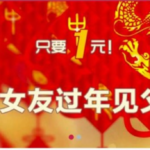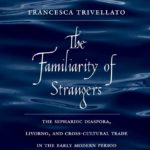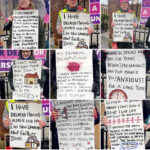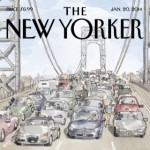“Authentic and Unique”: Walking and Talking with an Oxford University student.
I was sat on the steps of the Radcliffe Camera with a friend who was crying about her coursework when a tour group passed us. I joked “They should look at us, this is the authentic Oxford experience!”. But the guide had turned their attention to the elaborate crest above the door of Brasenose college.
Capitalism has created the ideal conditions for claims to authenticity. Producing goods for an overcrowded market, capitalist producers hope to construe their products as ‘authentic’ to imbue them with increased economic value. With an overwhelming quantity and diversity of Oxford walking tours available, ‘Footprint Tours’ Oxford University tour’s unique selling point is that it is led by Oxford students. This is described as a “current student” who “knows the campus intimately (TripAdvisor n.d.). They can answer questions on everything from “the interview process to the traditions”, giving a first-hand insight into what it’s like to study at, and belong to, the famous university (Footprint Tours n.d.).
The destinations that the tour visits are open for the public to walk around without a guide, although often at a small price. As the itinerary of the tour is available online, it would be possible to follow the route without the need of a guide. What is unique about this tour is the opportunity to hear about the Oxford University experience first-hand. Thus, I argue that the authentic product that the tour is selling is the student rather than the place itself.
Authentic products index regional identities and heritage. The linguistic and materiality of an ‘authentic’ object is seen to connect the product to specific places, times, practices, and bodies of knowledge (Cavanaugh & Shanker 2014: 56). Words and things coexist within global economies. Thus, taking a linguistic materiality approach, language is a way of marking ethnic and regional heritage, and of linking meanings with market values.
Authenticity is anchored in the present and future, and in a particular emplaced past. Drawing on Bakhtin’s (1981) concept of the ‘chronotope’, Cavanaugh and Shanker (2014: 52) discuss the practices of making links across events that occur at different times. Language is employed to make culturally specific connections across time and space. Thus, linguistic practices become bound materially to objects. The tour gives its customers historical knowledge about the university and its past students whilst placing it within the context of the architecture of the university and college buildings. Thus, it links past events and people with present-day material forms.
Authenticity is both a product and a process. The student who runs the tour is engaged in the communication and construction of authenticity. In online reviews, customers commend their guides as being “charismatic”, “witty”, and “entertaining” (TripAdvisor n.d.). They also comment on their extensive knowledge of the university traditions, college system, and daily life. Reviewers were particularly enthusiastic when they felt their guides had imparted personal stories about their experiences and scrapes at university. Language is essential in the labour process of imbuing material forms with meaning and value (Cavanaugh & Shanker 2014: 54). The students tour guides, by emplacing personal meanings on the places on the tour, are deemed by many as giving “authentic insight into daily life at the university” (TripAdvisor n.d.).
However, it is also in the hands of the consumers to decide whether a product is authentic. The online review site TripAdvisor is a public space which gives voice to these debates of authenticity. These comments do not focus on the authenticity of the place itself, rather instead focusing on the knowledge of the student tour guide. One TripAdvisor reviewer commented that they found their tour guide “very charismatic” who was knowledgeable about the university. This positive reflection is followed by the note “Don’t let the fact that Trevor is Canadian put you off. :-)” (TripAdvisor n.d.). This appears to be an implicit suggestion that to communicate an ‘authentic’ experience an Oxford student should be from the UK. Conflicting notions of what constitutes the authentic is an ongoing and open-ended process that can create tension in the commodity chain (Cavanaugh & Shanker 2014: 53).
As a student at the university myself, I would be interested see whether the image of the stressed student sat crying on the steps of the Radcliffe Camera is featured in these tours.
Contributed by TashDurie on 07/02/2022






